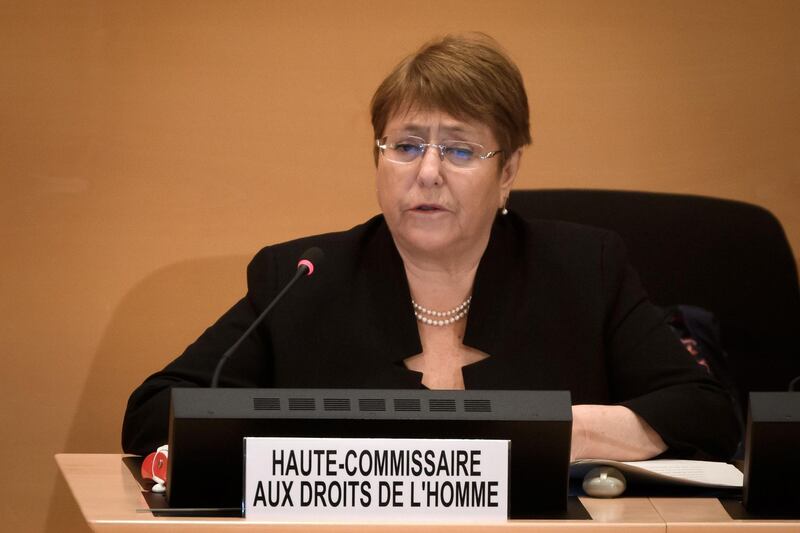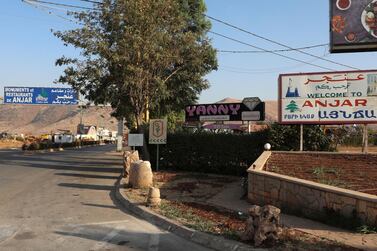Indiscriminate shelling in the Nagorno-Karabakh conflict could amount to war crimes, UN human rights chief Michelle Bachelet said on Monday as she urged Armenia and Azerbaijan to halt attacks on populated areas.
Fierce battles continued along the front line of the conflict, which has killed at least 1,000 people and possibly many more. Nagorno-Karabakh is internationally recognised as part of Azerbaijan but is populated and controlled by ethnic Armenians.
“Since the conflict reignited in September with the terrible consequences we are now seeing, there have been repeated calls, including by myself, for the parties to take all feasible steps to avoid – or at the very least minimise – the loss of civilian life and damage to civilian infrastructure, including schools and hospitals,” Ms Bachelet said.
Despite a deal reached in Geneva last Friday by Armenia and Azerbaijan to refrain from targeting civilians, attacks on populated areas were reported over the weekend, Ms Bachelet said, citing strikes on the central market in Stepanakert and the city of Tartar.
Citing data from both sides of the conflict, Ms Bachelet said about 40,000 Azeris had been temporarily displaced by the latest fighting while about 90,000 ethnic Armenians had fled Nagorno-Karabakh and were in Armenia.
International rights groups have also accused both sides of using banned cluster munitions, most recently in the shelling of the Azeri city of Barda on Wednesday.
“While many faked images have been circulating on social media, in-depth investigations by media organisations into videos that appeared to show Azerbaijani troops summarily executing two captured Armenians in military uniforms uncovered compelling and deeply disturbing information,” Ms Bachelet said. She noted it could be a war crime under the Geneva Conventions.
Hundreds of Armenian and Azerbaijani soldiers have died on the front lines, and scores of civilians have been killed. The number of casualties has not been independently verified and may be much higher than is being reported.
Photographs of elderly people sweeping the rubble of their destroyed homes in the disputed region have been circulated widely.
Separately, Armenia’s prime minister called for an investigation into the presence of mercenaries in Nagorno-Karabakh after ethnic Armenian forces said they had captured two fighters from Syria.
Azerbaijan denied the presence of foreign combatants.
Armenia’s foreign ministry said the Artsakh Defence Army, its name for the ethnic Armenian forces in Nagorno-Karabakh, had captured two Syrian combatants over the weekend, one from Idlib province and the other from Hama.
Armenian Prime Minister Nikol Pashinyan said in a Facebook post that the involvement of mercenaries was “a threat not only to the security of Nagorno-Karabakh and Armenia but also to international security and this issue should become a subject of international investigations”.







